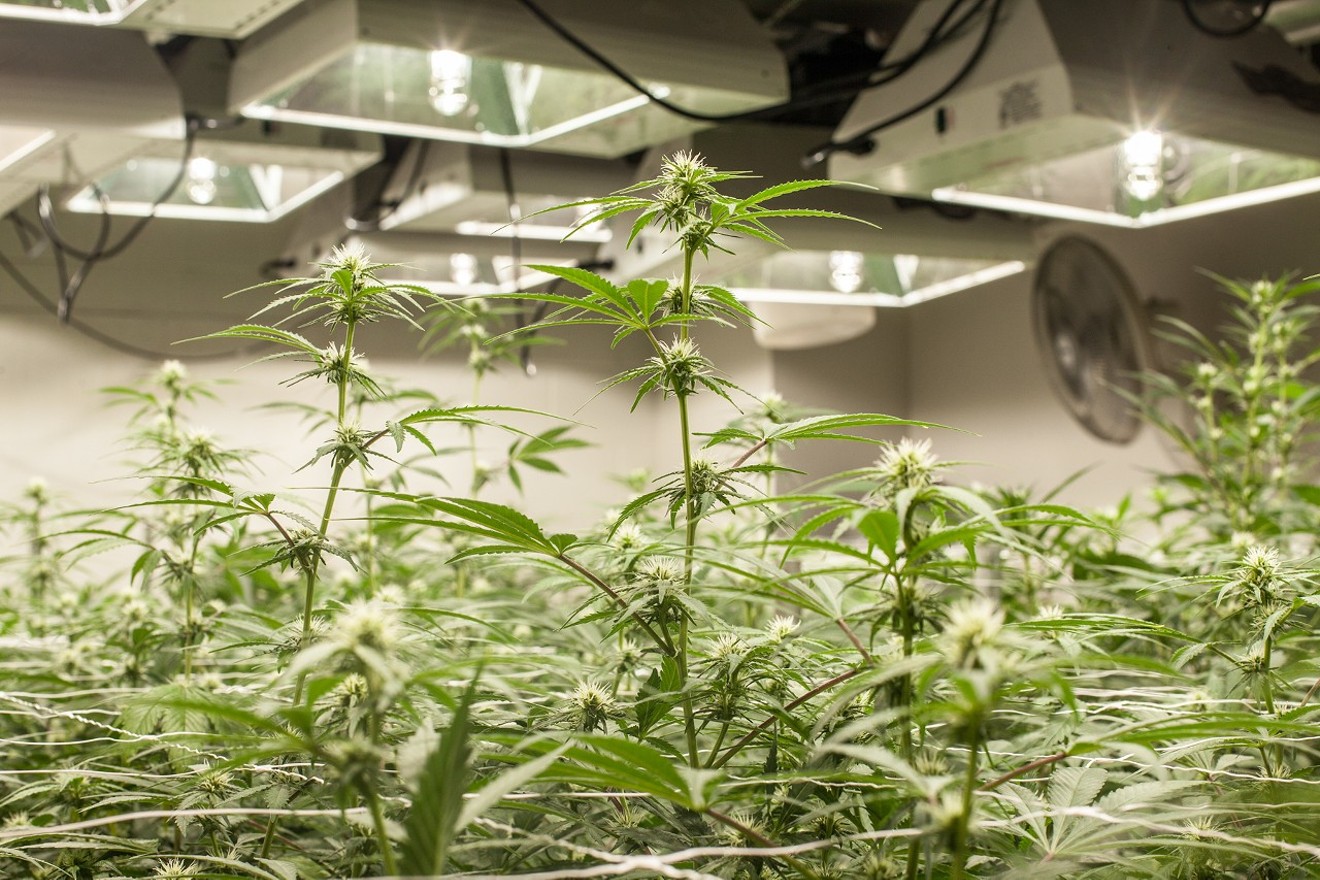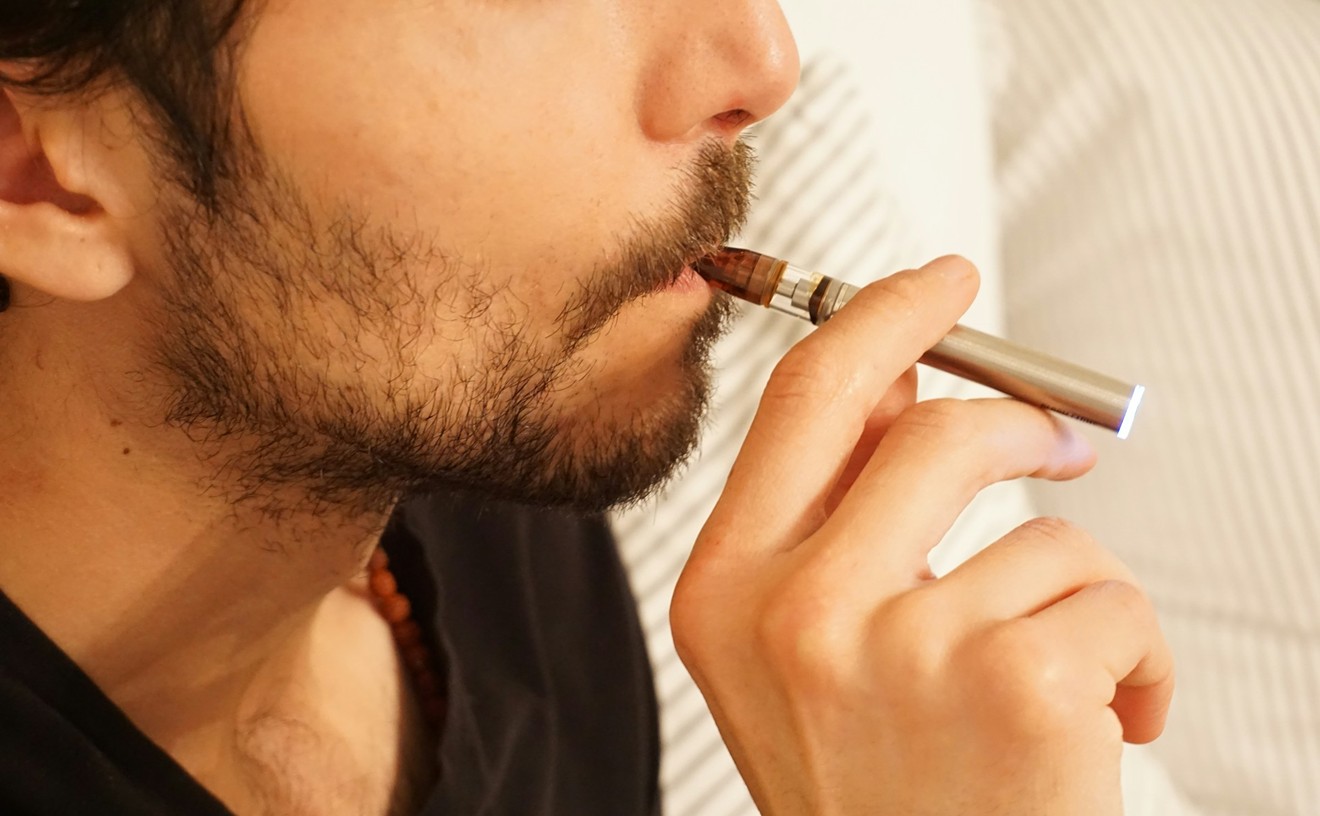As we approach our favorite unofficial holiday on April 20, it's nearly impossible to know the immediate future of Colorado's cannabis industry, with numerous regulatory and societal changes (and un-changes) surrounding the plant less than a month into the pandemic. But weeds are tough plants — and essential ones, too, according to the State of Colorado. To get more perspective, we caught up with a half-dozen cannabis trailblazers and OGs, all of whom were here before retail was legalized and the money quickly followed. Some have adapted to the evolving culture, others have refused to compromise, but all play a role in how we view the plant now — and how 4/20s of the future might look. Here's the fifth in our "Rolling With the Punches" series.
Legal cannabis requires lawyers, business owners and politicians to all get behind it, but weed would remain just that — a weed — if it weren't for the breeders and growers who are constantly pushing the plant forward. Those purple, frosty nugs didn't always look like that, nor did they always smell like grape soda. Someone worked really hard to foster those qualities. Until about a decade ago, most of this work was done in basements. Today it's big business.
Scott Reach is a rare example of an experienced cannabis breeder who has successfully moved his business from the basement to the legal market. His Rare Dankness line of seeds continually creates popular and award-winning strains for stores and home growers — but Reach's passion didn't stop at Ghost Train Haze. The former cancer patient's dispensary, House of Dankness, has become a local favorite for flower on the cutting edge, thanks to an old-school approach infused with a gardener's passion.
Westword: Looking back on it, how many underground growers were able to crack the legal market? How many were taken advantage of or screwed over in the early days?
Scott Reach: Man, hardly any of us stuck around. Maybe one in ten, but that's a big maybe. Everyone has a dream. And to be able to open up a store and a grow — and not make a million dollars, but just to be able to run your own store and grow, and do something you're passionate about — that's the biggest piece of the dream everybody has. But what a lot of people don't understand is that not every grower should be a businessman, and not every businessman should be a grower. We've seen so many guys with money try to come in, and I honestly blame them for all the hurdles we have now.
There's been a lot of carpetbagging, and growers are traditionally a trustworthy group. So you have these ridiculously high real estate prices in the early days, and growers make a deal but get behind on the rent, or they didn't produce a certain amount of weight, and next thing they know, someone else owns their grow. I've seen that happen across the country, where good growers are losing their dream gardens. There's also a certain amount of getting beat down that some people can't take. Some people are too smart to keep taking the punches and wiping snot off their faces.
What would it take for you to leave it behind?
When I built this grow, I got the dispensary just to have an outlet for product. But we knew the market is saturated, and it can get to a point where the daily operations can make you crazy.
There's a certain dateline on technology. Even when I was ahead of the curve while building our current grow, that's five years old now. If a big company came to me and said they wanted to build a 200-acre greenhouse with a full staff and it'd be state-of-the-art, I wouldn't be stupid. You want to go national if the bigger, brighter facility and the opportunity to [do so] presents. This is all spitballing here, but you can't put all your eggs in one basket.
A lot of breeders point to one strain that really kickstarted their career. Do you have one?
Rare Dankness #1. That's basically the strain that got everything started. Back when I was working in Longmont in 2009, I'd just gone from an underground grower to having this little shop, Stone Mountain. We had seeds for sale there, which ultimately became Rare Dankness seeds. When this first started popping off in 2009, we had all these Boulder trust-fund kids who'd take the $150,000 or $200,000 that Mommy and Daddy gave them, and put up these growers and all these crazy things. That's how I got into consulting: I was just helping people go from underground to aboveground.
These kids in Longmont had an LED grow before anyone did, and they were popping all sorts of crazy seeds from different breeders. They had the beans, and some of them were from me. We crossed those seeds with Ghost OG, and after a bunch of back-crossing with other strains, it started to work out. Now so many other breeders are doing OG strains. Some things go away and others really work out, and that one worked out.
That sounds like an extremely extensive process. How long did all of that take? Do you think most breeders realize they're starting a foundation when doing all of this work?
No. For me, breeding is just to see if something comes out good. If the line comes out better than what it was before, great; if not, I go to another line. That's the excitement about breeding: Even with all of the cannabinoid and terpene testing today, you really don't know what the plant is going to be until it's finished, until that last day when you're done drying it and curing it, and you can actually smoke it. That uncertainty and variety has always been the draw and passion piece for me. Multi-tasking and running more gardens, lights and spaces will speed that up a lot.
Back in the old days, I had about sixteen lights in my personal medical garden. Then I had five or seven friends who had eight to ten lights, and a few other friends with two lights. I started getting everyone in on it as people slowly start coming aboveground, and I was making these crazy deals with other growers and shops to abandon their plants so we could breed some new seeds, and they'd keep the female plants. So many operations opened their gardens to me, and now all of a sudden I have all this opportunity within a legal framework to play and learn with these plants at different places, and grow 100 plants instead of ten or fifteen. Then Colorado changed the laws, and I couldn't bounce around between grows like that, so I started House of Dankness.
Which strains are you excited to work with at the moment?
I personally like the sativas and long-flowering hazes, but you don't see many strains in dispensaries that flower for seventy days. I'll always been known for Ghost Train Haze, but I'll be honest: It's not my favorite strain. Ghost Train Haze makes me a little too manic. Scott's and Lee Roy OGs are dear to me, too. Pippa is a new one, which is Flo with a Cookies cross. Right now I'm messing with a whole bunch of old-school Amsterdam Hazes, and I'm excited to show people what those are like.
[
{
"name": "Air - MediumRectangle - Inline Content - Mobile Display Size",
"component": "12017618",
"insertPoint": "2",
"requiredCountToDisplay": "2"
},{
"name": "Editor Picks",
"component": "17242653",
"insertPoint": "4",
"requiredCountToDisplay": "1"
},{
"name": "Inline Links",
"component": "18838239",
"insertPoint": "8th",
"startingPoint": 8,
"requiredCountToDisplay": "7",
"maxInsertions": 25
},{
"name": "Air - MediumRectangle - Combo - Inline Content",
"component": "17261320",
"insertPoint": "8th",
"startingPoint": 8,
"requiredCountToDisplay": "7",
"maxInsertions": 25
},{
"name": "Inline Links",
"component": "18838239",
"insertPoint": "8th",
"startingPoint": 12,
"requiredCountToDisplay": "11",
"maxInsertions": 25
},{
"name": "Air - Leaderboard Tower - Combo - Inline Content",
"component": "17261321",
"insertPoint": "8th",
"startingPoint": 12,
"requiredCountToDisplay": "11",
"maxInsertions": 25
}
]













